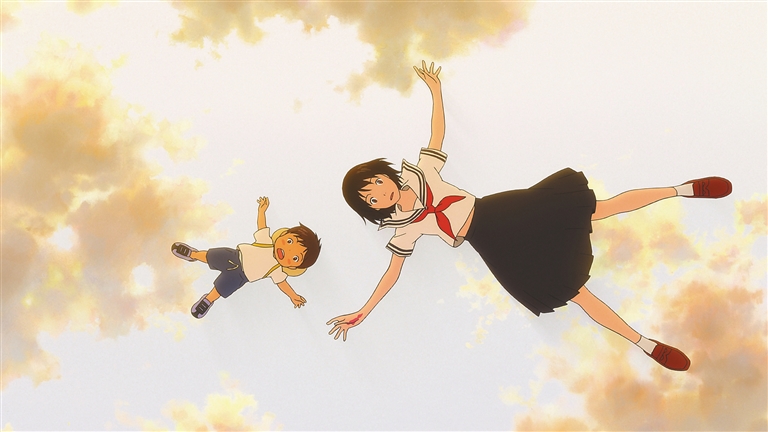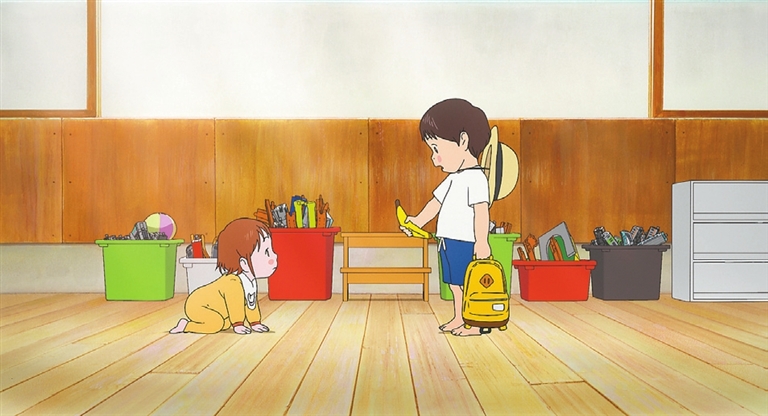


The complex, sometimes fraught relationship between older and younger siblings is mapped with kindness, imagination and wit in “Mirai,” from Japanese writer-director Hosoda Mamoru, the founder of production house Studio Chizu. Inspired by Hosoda’s experience watching his own kids interact, this latest work, rooted more in realism and domesticity despite some flights of fancy, continues the director’s ongoing preoccupation with family dynamics, explored previously with more fantastical settings in “The Boy and the Beast” (2015) and “Wolf Children” (2012). In an affluent suburb, Kun, a little boy of maybe 3 or 4, lives with his mom and dad in a flowing, modernist house — designed by Kun’s dad himself — that descends room by room down a hill, enclosing a little yard with a single tree. The home is practically a character in the story, and clearly is the center of the universe for Kun, a cozy, womb-like space where all his needs are met by his devoted parents, with supplementary love from grandma and the family’s fluffy-eared mutt, Yukko. The peace of this harmonious little world is disrupted by the arrival of Mirai, Kun’s new little sister, who, although cute, also makes demands on his parents’ time and attention, much to Kun’s chagrin. Kun tries to be forebearing but the natural impatience, even outright self-centeredness, of young children sometimes takes hold and he can be a bit mean to Mirai, even hitting her lightly at one point. When mom goes back to work and leaves dad to look after the kids at home, Kun takes to spending a lot of time alone in his playroom or the yard. There, he makes friends with a dashing prince in 18th century clothing who the audience and Kun eventually realize is actually Kun’s fantasy personification of Yukko the dog (the floppy hair is sort of a giveaway). Likewise, Kun’s late grandfather and a grown-up, teenage version of Mirai from the future pay visits to help Kun with life lessons. The above description risks making the film sound terribly twee and didactic, but Hosoda has a lovely, light touch and leavens the proceedings with dry, well-observed humor. Likewise, the character design walks the line with grace between big-eyed anime cutesiness and closely observed realism, capturing with insightful wit the way dogs and kids move and wiggle, especially given the fact that they have different centers of gravity compared to adults. There are also some finely timed slapstick moments, and altogether, the story lasts a comparatively sprightly and pleasant 98 minutes, displaying a brevity that would serve more cartoons from the region well. (SD-Agencies) | 
